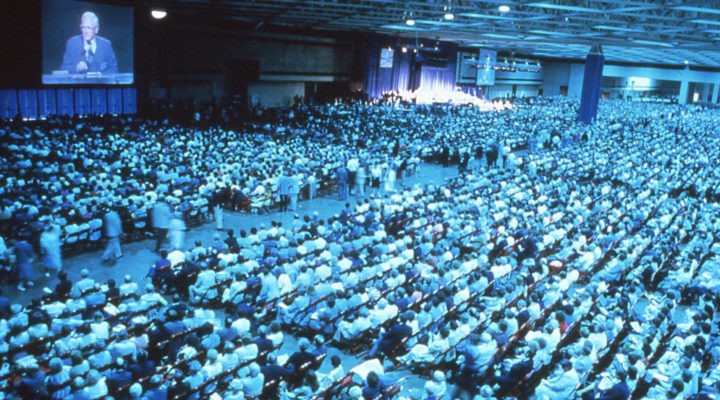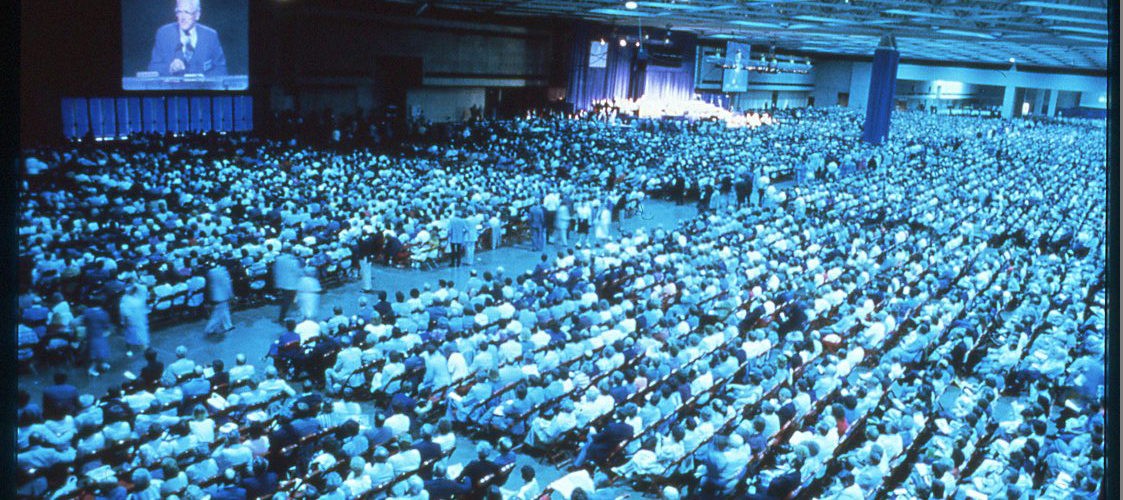The Southern Baptist Convention is on track to have its most attended and most consequential annual meeting in 25 years when it gathers in Nashville June 15-16.
Ronnie Floyd, president of the SBC Executive Committee, announced on Twitter that pre-registration had surpassed 13,000 and was expected to increase more. Recent SBC annual meetings have drawn 5,000 to 7,000 people — a dramatic decline from the hotly contested days of the so-called “conservative resurgence” that dominated from 1979 to 2000.
The last time the SBC recorded more than 13,000 in attendance at an annual meeting was 1996 in New Orleans. The all-time high was 45,000 in Dallas in 1985, when the crowd was so enormous that downtown Dallas traffic was clogged for hours.
The last time the SBC recorded more than 13,000 in attendance at an annual meeting was 1996 in New Orleans.
The last stand for many moderates and progressives who were shut out by the conservative movement was the 1990 convention in New Orleans. That was the year the movement started by Paige Patterson and Paul Pressler gained a majority of trustees on the SBC Executive Committee and immediately fired the two editors of Baptist Press who had been reporting on their political machinations.
By 1995, the same group had gained complete control of all SBC agencies and institutions. And with the adoption of a controversial revision to the Baptist Faith and Message statement at the 2000 convention in Orlando, all resistance stopped and attendance at annual meetings continued to drop.
But this year, some of the same factors that drove attendance at annual meetings two decades ago are back in play. Only this time, the battle lines are drawn between the very conservative and the extremely conservative. The lines also are drawn over issues including race, male headship, national politics and denominational transparency.
In an unusual turn of events, at least four candidates will vie for the SBC presidency, an elected role for a one-year term with a chance of re-election to a second year. The president serves as a figure head and spokesperson for the denomination and wields significant influence by appointing the committee to nominate those who in turn nominate trustees of agencies and institutions.
Conservative Baptist Network
One of the forces driving interest and attendance at this year’s convention is a relatively new group called the Conservative Baptist Network. This is a coalition of pastors and others who believe the nation’s largest non-Catholic denomination is once again threatened by liberalism and needs a second “conservative resurgence.”
The group and its leaders have numerous ties to Paige Patterson.
The group and its leaders have numerous ties to Paige Patterson, former president of Southwestern Baptist Theological Seminary and a co-architect of the first “conservative resurgence.” In an interview with Baptist Press published June 1, Patterson for the first time acknowledged publicly that he is part of this network.
BP reported Patterson and his wife, Dorothy, were in attendance at a Bible conference held by the Conservative Baptist Network in September 2020 at Mid-America Baptist Theological Seminary in Memphis. The story explained: “While he played no role in the event’s program, Patterson acknowledged to Baptist Press his involvement in the formation of the CBN. He confirmed that his home in Parker, Texas, was the setting for initial promotional videos made upon the group’s launch in February 2020. His ties had not previously been publicly acknowledged.”
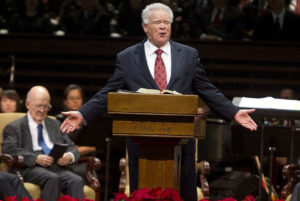
Paige Patterson
Patterson did not characterize to BP his level of involvement with the group, but stated: “I’m very grateful for what they are doing, and I believe in what they are doing.”
The network has produced a guide for those attending the convention to explain its positions. That guide says: “Southern Baptists have expressed concern regarding an apparent departure from the doctrine of Scripture as inerrant and sufficient within portions of the Southern Baptist Convention. In some instances, Baptists have embraced unbiblical ideologies such as Critical Race Theory through the adoption of Resolution Nine at the 2019 annual meeting of the SBC. In other instances, women have begun serving in preaching and pastoral leadership roles, a practice not in keeping with Scripture or long-standing Baptist distinctives. Concerns have also been expressed about curriculum taught at SBC seminaries and the cooperation and representation of Southern Baptists by the Ethics and Religious Liberty Commission and the North American Mission Board.”

Mike Stone
For these and other problems, the SBC needs a “course correction,” the group contends. “The solution is for conservative Southern Baptists to engage and become involved in the work of the SBC. Attending the annual meeting, voting according to biblical convictions, supporting conservative candidates for the SBC presidency, and partnering together through the Conservative Baptist Network are important aspects in reengaging to preserve the Southern Baptist Convention.”
The group has a favored candidate in the presidential race, Mike Stone, and is working to get out the vote in his favor.
Critical Race Theory
Chief among the hot issues certain to be debated is Critical Race Theory and other systems of talking about America’s racial history. Presidents of the six SBC seminaries declared in late November 2020 that they are fully against Critical Race Theory and will not allow it to be taught in their schools.
Critical Race Theory, while a specific academic construct, has become a stand-in for a wider set of concerns in the national dialogue over the past year. The debate at one point drew in former President Donald Trump (who’s against Critical Race Theory) but has alienated many Black pastors, who have left or are threatening to leave the SBC over the perceived insensitivity of its white male leadership.
At the 2019 annual meeting, messengers (as voting members are called in the SBC) adopted a non-binding resolution on Critical Race Theory. Now known simply as Resolution Nine, it declared an affirmation of Scripture “as the first, last and sufficient authority with regard to how the church seeks to redress social ills, and we reject any conduct, creeds and religious opinions which contradict Scripture.”
It further resolved “that Critical Race Theory and intersectionality should only be employed as analytical tools subordinate to Scripture — not as transcendent ideological frameworks.”
Several messengers to this year’s convention have announced intentions to bring motions that would rescind or revise Resolution Nine.
This brokered compromise on language by the convention’s Resolutions Committee kept some people in the fold and angered others to the point of starting a campaign against Resolution Nine. Among those vocal critics is the Conservative Baptist Network.
Several messengers to this year’s convention have announced intentions to bring motions that would rescind or revise Resolution Nine. And that in itself creates a parliamentary conundrum due to Baptist polity.
By most historical understanding, the non-binding resolutions adopted at annual meetings only express the sentiment of those messengers gathered on that day. Therefore, they cannot be rescinded by future conventions. Some cite historical precedents for addressing actions of previous conventions, but the clearest way to make a different statement would be to adopt a new resolution or policy.
This issue likely will play out both through motions made on the floor of the convention and through the work of the Resolutions Committee, which is chaired by James Merritt, a Georgia pastor and former SBC president.
Ethics and Religious Liberty Commission
The Conservative Baptist Network and others among the most conservative branch of the SBC have targeted the denomination’s Ethics and Religious Liberty Commission as being out of touch with their values. They campaigned against the Nashville-based agency’s executive director, Russell Moore, to the point that he recently announced his departure for a new job with Christianity Today.
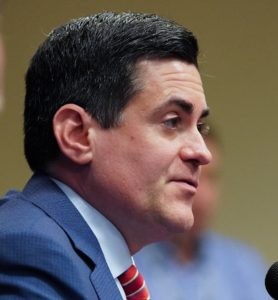
Russell Moore
Moore became a lightning rod for his stances on several issues — despite being a bona fide theological and political conservative who believes in biblical inerrancy and opposes abortion. He was hounded for opposing former President Donald Trump as an immoral leader, for speaking about boldly on the problem of sexual abuse in Baptist churches, for speaking out on issues of race and for supporting legal immigration as a biblical mandate.
One of the four candidates for SBC president, who is supported by the Conservative Baptist Network, has been among Moore’s chief antagonists and last year chaired a special study group that sought to cast Moore and the ERLC in a bad light.
Close observers believe it is possible a motion will be made at the June convention to defund the ERLC or to narrow the scope of its influence or to reassign all or part of its work to the Executive Committee. If left intact, the commission’s next president would be selected by ERLC trustees, not by the Executive Committee or the convention at large.
North American Mission Board
Another agency under scrutiny — but for different reasons — is the North American Mission Board based in Alpharetta, Ga. The primary focus of this organization is church starting, to which the SBC gives tens of millions of dollars annually to do.
Nevertheless, the number of new congregations being started continues to fall below stated goals, and the agency’s leader has sparked a war with leaders of state Baptist conventions outside the deep South. That dispute is largely over strategy and funding, with NAMB taking back for its exclusive use funds previously shared in joint strategies.

Randy Adams
One of those state convention executives, Randy Adams, is among the candidates for SBC president. His platform is built on a demand for greater transparency, accountability and partnership.
Serious questions also have been raised about how NAMB uses money and how it creates a culture of fear and intimidation among its employees and partners. A federal lawsuit over this issue currently is pending before the United States Supreme Court.
Business and financial plan
The SBC Executive Committee has proposed a new Business and Financial Plan that is one of the more complicated documents convention messengers will be asked to read through. It includes many details about the inner workings of the denomination’s coordinating entity.
However, some critics of the new plan have raised concerns that the revised document would grant even more unilateral authority to the Executive Committee at the expense of the various agencies and institutions and that it would decrease transparency.
This is inside baseball for those who care most for denominational work. History shows someone would have to make an extremely compelling case to gain a revision or rejection of such a technical document most convention messengers will not read.
Presidential election
Apart from possible resolutions and actions related to race and culture, the most important decision convention messengers will make is selection of a new president. The current SBC president, J.D. Greear, continued his term an additional year due to the coronavirus pandemic and is not eligible for re-election.
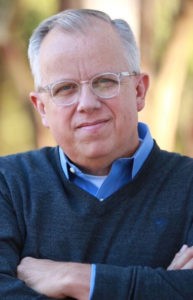
Ed Litton
The anticipated candidates are Randy Adams, executive director of the Northwest Baptist Convention; Ed Litton, pastor of Redemption Church in Saraland, Ala.; Albert Mohler, president of Southern Baptist Theological Seminary in Louisville, Ky.; and Mike Stone, pastor of Emmanuel Baptist Church in Blackshear, Ga.
It is rare, but not unprecedented in SBC history, for a sitting head of an affiliated agency or institution also to serve as convention president. If Mohler is elected, he would be the first to do so since Paige Patterson, who served as SBC president from 1999 to 2000 while president of Southeastern Baptist Theological Seminary.
Patterson, who was one of the two architects of the late 20th century “conservative resurgence” in the SBC, was the first seminary president to serve concurrently as SBC president in 60 years. However, two of Mohler’s early predecessors at Southern Seminary filled both roles: James P. Boyce and E.Y. Mullins.
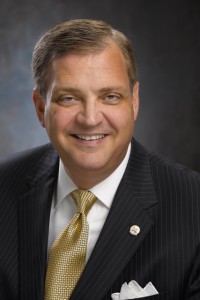
Albert Mohler
Mohler has positioned himself as a doctrinal purist and a chief interpreter of Southern Baptist beliefs both inside and outside the denomination. He has been deeply involved in the institutional life of the denomination, chairing committees and task forces.
Adams, if elected, would be the first president from the Pacific Northwest. He is running on a platform of requiring more financial and data accountability from SBC agencies and institutions, especially NAMB. He is among state convention executives who have expressed extreme displeasure with NAMB’s current leadership and its way of working with state conventions.
Litton is perhaps the least-known of the four candidates. Since 1994 he has been pastor of Redemption Church in Saraland, Ala. He previously served on staff of a large Baptist church in Texas and then worked in college ministry in Arizona, where he also started a church. His advocates portray him as a uniter and a healer who is interested in racial reconciliation.
Stone is immediate past chairman of the SBC Executive Committee and chaired the investigation into Russell Moore and the SBC. He is a member of the steering council of the Conservative Baptist Network and previously served as president of the Georgia Baptist Convention and as chair of that state convention’s Executive Committee. He is the preferred candidate of the Conservative Baptist Network.
Floyd appeals for unity in tough times

Ronnie Floyd
In advance of the Nashville meeting, SBC Executive Committee President Floyd issued an appeal through Baptist Press for Southern Baptists to unite despite the apparent divisions among them and the challenges presented by coronavirus.
“Our convention is facing unprecedented challenges,” he said. “We are a large and diverse network of churches located across the entire United States. Coming out of a global pandemic, our personal lives and churches have been affected in every conceivable manner. All of this is converging with an ongoing godless culture that saturates our lives and operates in a way that conflicts with our Bible-based, Christ-centered worldview as Southern Baptists.”
Information about the convention and a livestream of the proceedings will be available on the SBC’s website.
Related articles:
Could you win a quiz show by defining ‘Critical Race Theory’?
Russell Moore leaves ERLC for Christianity Today, highlighting the new schism within SBC
What’s old is new again: Conservatives threaten funding over SBC’s ethics agency
Why Beth Moore’s departure from the SBC really matters
Spokesman says Conservative Baptist Network already a success

